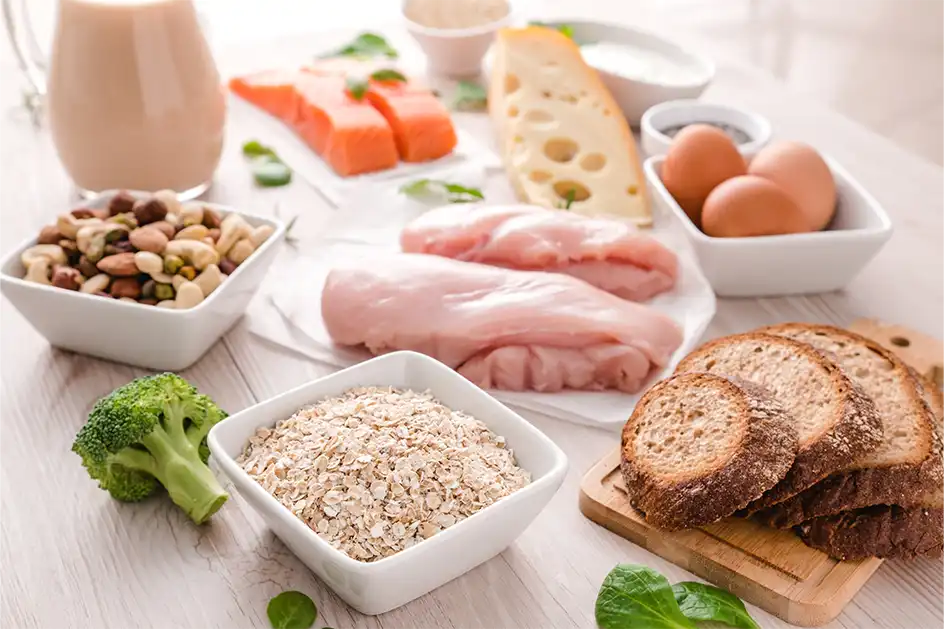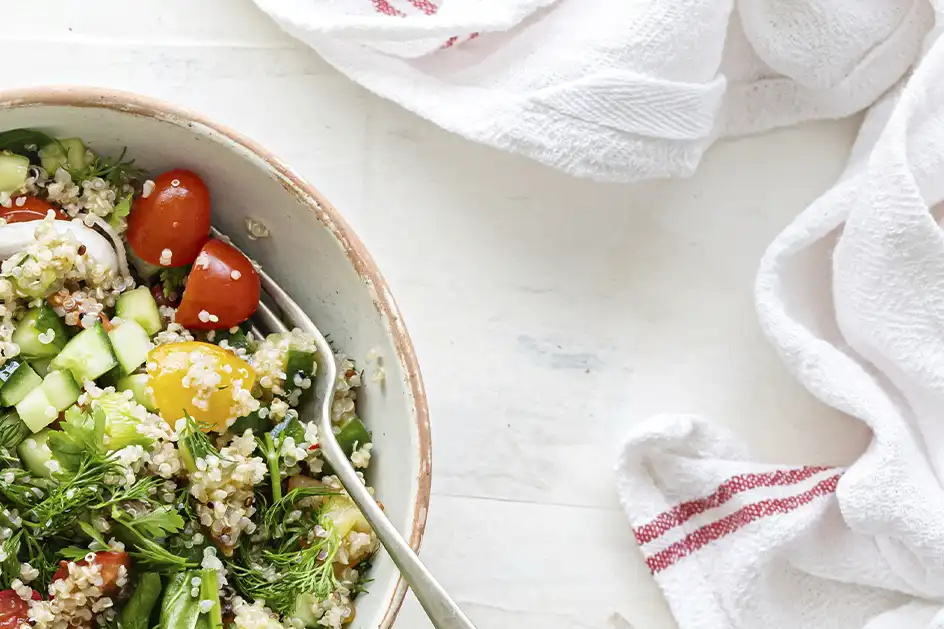When it comes to maintaining a healthy diet, understanding the right sources of fats. carbs. and proteins is essential. Each of these macronutrients plays a unique role in fueling your body, supporting muscle growth, maintaining energy levels, and contributing to overall health. In this article, we’ll explore various healthy sources of fats, carbohydrates, and proteins, and how you can incorporate them into your diet to create a balanced, nutritious meal plan. Let’s dive into the details of these macronutrients and discover how they contribute to a healthier lifestyle.
What Are Macronutrients and Why Do You Need Them?
Macronutrients are the nutrients that provide the energy your body needs to function. They are classified into three main groups: fats, carbohydrates, and proteins. Each of these plays a crucial role in different bodily functions, from building muscle to providing energy and supporting brain function. A balanced diet should include all three, but it’s important to choose the right sources for each.
Healthy Fat Sources
Contrary to popular belief, not all fats are bad for you. In fact, healthy fats are essential for your body to absorb vitamins, produce hormones, and keep your heart healthy. Below are some examples of healthy fat sources and their nutritional values:
- Olive Oil:
Olive oil is a great source of monounsaturated fats, which can help reduce bad cholesterol levels and improve heart health.
Calories: 900
Fat: 100g - Salmon:
Salmon is rich in omega-3 fatty acids, which have anti-inflammatory properties and can lower the risk of heart disease. It also provides a good amount of protein.
Calories: 210
Fat: 12.5g - Almonds:
Almonds are loaded with healthy fats, fiber, and magnesium, making them an excellent snack to support heart health and weight management.
Calories: 575
Fat: 49g - Coconut Oil:
Coconut oil is high in medium-chain triglycerides (MCTs), which can boost fat burning and provide quick energy to your body.
Calories: 354
Fat: 33g - Avocado:
Avocados are packed with heart-healthy monounsaturated fats, along with fiber and potassium, making them an ideal fat source for a balanced diet.
Calories: 160
Fat: 15g
Healthy fats like those found in olive oil, nuts, and fatty fish should be a regular part of your diet. They not only help you feel full but also provide numerous health benefits, such as reducing inflammation and promoting brain function.
Healthy Carbohydrate Sources
Carbohydrates are your body’s primary source of energy. However, it’s essential to choose complex carbohydrates over simple carbs to ensure sustained energy without blood sugar spikes. Here are some healthy carb sources:
- Oats:
Oats are rich in fiber, especially beta-glucan, which can lower cholesterol levels and improve gut health.
Calories: 378
Carbs: 60g - Whole Wheat Pasta:
Whole wheat pasta is a great alternative to refined pasta, offering more fiber and nutrients, which help in slow digestion and prolonged energy release.
Calories: 371
Carbs: 75g - Brown Rice:
Brown rice is a whole grain, packed with fiber, vitamins, and minerals. It provides slow-releasing energy, making it a better choice than white rice.
Calories: 360
Carbs: 80g - Chickpeas:
Chickpeas are a good source of fiber and plant-based protein. They help in regulating blood sugar levels and keeping you full for longer.
Calories: 378
Carbs: 63g - Honey:
While honey is a natural sweetener, it also provides antioxidants and anti-inflammatory benefits, making it a better alternative to processed sugars.
Calories: 302
Carbs: 82g - Sweet Potatoes:
Sweet potatoes are rich in fiber, vitamins A and C, and provide a steady supply of energy. They are a great carbohydrate source for weight loss and energy maintenance.
Calories: 80
Carbs: 17g - Dates:
Dates are high in natural sugars and fiber, making them a great energy-boosting snack or a natural sweetener in recipes.
Calories: 306
Carbs: 67g
When selecting carbohydrate sources, focus on whole grains, legumes, and vegetables that offer more fiber and nutrients than refined carbs. This will provide you with sustained energy and prevent the sugar crashes associated with simple carbohydrates.
Healthy Protein Sources
Proteins are essential for building and repairing tissues, producing enzymes and hormones, and supporting immune function. Here are some healthy protein sources that are nutrient-dense and beneficial for your health:
- Chicken Breast:
Chicken breast is one of the leanest sources of protein, making it ideal for building muscle and losing fat.
Calories: 110
Protein: 23g - Lean Beef:
Lean beef provides a high amount of protein, iron, and other essential nutrients, which are critical for muscle development and overall health.
Calories: 200
Protein: 23g - Sardines:
Sardines are rich in protein and omega-3 fatty acids, supporting brain health and reducing inflammation.
Calories: 135
Protein: 20g - Eggs:
Eggs are a complete protein source, meaning they contain all nine essential amino acids your body needs. They are also rich in vitamins and minerals.
Calories: 144
Protein: 12.6g - Tuna:
Tuna is a low-calorie, high-protein fish that’s great for maintaining muscle mass and promoting weight loss.
Calories: 100
Protein: 24g - Nuts (Mixed):
Nuts are an excellent source of protein, healthy fats, and fiber. They are also rich in vitamins and minerals that support heart and brain health.
Calories: 600
Protein: 27g - Lentils:
Lentils are a plant-based protein that’s also high in fiber, making them a great option for vegetarians and vegans.
Calories: 300
Protein: 24g - Soybeans:
Soybeans are one of the highest plant-based protein sources, packed with fiber, vitamins, and minerals. They are a perfect addition to a vegetarian or vegan diet.
Calories: 450
Protein: 36g
Including a variety of protein sources in your diet can ensure that you’re getting all the essential amino acids your body needs. Animal-based proteins like chicken, fish, and beef provide complete proteins, while plant-based options like lentils and soybeans are excellent alternatives for vegetarians and vegans.
How to Balance Fats, Carbs, and Proteins for Optimal Health
To create a balanced diet, it’s crucial to understand how to incorporate healthy fats, carbs, and proteins into your meals. Here are some tips:
- Focus on whole foods:
Prioritize whole, minimally processed foods like fruits, vegetables, whole grains, lean meats, and healthy fats to get the most nutrients out of your diet. - Portion control:
While healthy fats, carbs, and proteins are essential, consuming them in the right portions is key to maintaining a healthy weight and avoiding overconsumption. - Include all three macronutrients in every meal:
Aim to balance your meals with a source of protein, healthy fats, and complex carbohydrates to keep your energy levels stable throughout the day. - Stay hydrated:
Water is just as important as food when it comes to digestion, nutrient absorption, and overall health. Drink plenty of water throughout the day.
A well-balanced diet that includes healthy fats, carbs, and proteins is essential for maintaining energy, supporting muscle growth, and promoting overall health. By choosing nutrient-dense sources like olive oil, salmon, oats, and lean meats, you can provide your body with the fuel it needs to function at its best.


